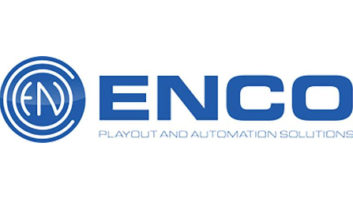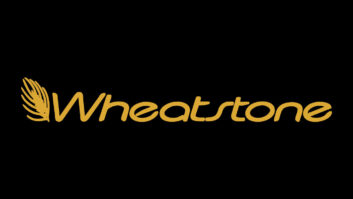Shades of big brother
Aug 1, 2004 12:00 PM, Chriss Scherer, editor
In late June, the FCC released a Notice of Proposed Rulemaking that sought to require broadcasters to retain recordings of on-air programs. Specifically, the FCC is interested in verifying that stations are not broadcasting indecent material outside the safe harbor hours from 6 a.m. to 10 p.m.
With the passionate interest in eliminating material that could be considered indecent from the airwaves, this action adds yet another item to the agenda. When the NPRM was released, FCC Commissioner Michael Copps issued a separate statement, which makes it rather obvious that he is the one pushing this item through.

From the FCC’s point of view, there is no additional work for the other commissioners. Barring any compelling opposition, what will probably happen is that the rule will be added. For the commissioners, it’s easier to let it go through than fight it. And like so many other issues that relate to moral opinion, it will only make the opposing commissioner look bad to a segment of the public.
In his statement, Copps mentions that under the current rules, the person filing an indecency complaint is asked to also supply a recording of the event or it will be dismissed. According to Copps, this procedure �ignores that it is the Commission’s responsibility to investigate complaints that the law has been violated, not the citizen’s responsibility to prove the violations.�
In every legal proceeding, it is up to the accuser to provide the evidence to prove the guilt. If mandatory logging is added to the rules it will provide the means for a licensee to provide the material that may incriminate itself. In other words, prove your innocence, but if you can’t provide the recording, then you are guilty of violating the rules. It seems that there would be no way for the licensee to win.
As it is, even if a recording exists, the content is still subject to interpretation as to whether or not it is indecent. So while a licensee may protect itself by providing a recording that it believes exonerates any wrong doing, the interpretation of the material may be to the contrary.
Depending on the potential fines, a licensee may pick and choose which recordings to provide and which to hide to better his chances of receiving a lesser fine.
Indecency has no place on the public airwaves. I think anyone will agree with that. Licensees should take responsibility for their programming. But as I said, there is no clear-cut definition of indecency.
With all this said, I should note that broadcast logging is a common practice in other countries. Does required logging violate free speech rights? That is a major point that will be debated, and the FCC specifically asked about this matter. Along this line, I recently ready about a 1970 action by the U.S. Court of Appeals for the District of Columbia that declared unconstitutional a law requiring the Public Broadcasting Service to retain tapes of controversial programming. This new NPRM sounds similar in scope, and even if the FCC approves it, the courts may overturn the decision.
I have heard complaints from stations that required logging will present a financial hardship on some stations. Creating some kind of logging system is not difficult and does not need to be overly expensive. With a little creative thinking, a system can be created on a minimal budget.
For a station, logging also has its benefits. The recording can be used to verify that something was played on the air. Smarter logging systems can also be used as skimmers to aid in announcer reviews.
In the end, it doesn’t bother me if required logging is instituted. A licensee can take advantage of a logging system. A responsible broadcaster won’t have anything to worry about anyway. However, easy public access to required logs could too easily be abused, in which case the requirement would become a hardship for stations. This could spiral into a never-ending set of rules that dictate a relatively minor concern in the overall goal of responsible broadcasting.
Send comments to: E-mail:[email protected]
Fax:913-967-1905












